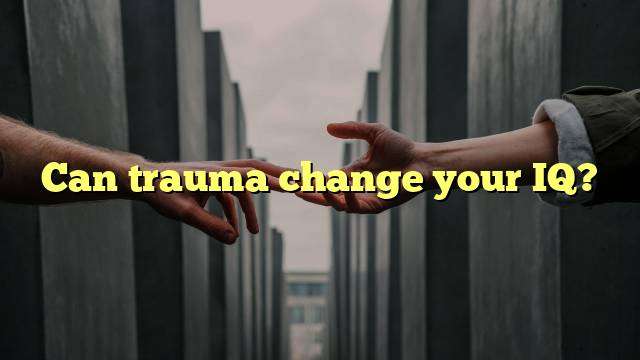Can Trauma Change Your IQ?
When discussing the impact of trauma on the human body and mind, it’s often assumed that traumatic events can have a negative impact on an individual’s cognitive abilities. But is this true? Is it possible for trauma to change an individual’s IQ?
The answer is yes. Trauma can have a significant impact on an individual’s IQ and other cognitive abilities, and this impact is often long-lasting. Research has shown that the effects of trauma can be seen in a variety of cognitive domains, including memory, attention, and problem solving.
Studies have also found that the effects of trauma can be seen even in individuals who have experienced only mild to moderate levels of trauma. In one study, researchers found that even mild levels of trauma could lead to a decrease in IQ of up to 7.5 points.
This decrease in IQ appears to be linked to the effects of trauma-related distress. Trauma-related distress is the psychological and emotional distress that an individual experiences in response to a traumatic event. It can manifest itself in a variety of ways, such as fear, anxiety, guilt, and shame.
Research has found that individuals who experience higher levels of trauma-related distress are more likely to experience a decrease in IQ. This is likely due to the physiological changes that occur in response to trauma-related distress, such as increased levels of cortisol, a hormone associated with stress.
It’s important to note that the effects of trauma on IQ are not always negative. Trauma can also have a positive impact on IQ. Studies have found that individuals who experience positive responses to trauma, such as post-traumatic growth, are more likely to experience an increase in IQ.
Overall, it’s clear that trauma can have a significant impact on an individual’s IQ. It’s important to understand how trauma can affect an individual’s cognitive abilities so that individuals who have experienced trauma can get the support they need to manage their symptoms and thrive.
What is Trauma?
Trauma is any experience that causes psychological or emotional distress. It can occur in the form of a single event, such as a car accident or physical assault, or it can be the result of long-term, repeated exposure to a traumatic situation, such as living with an abusive partner or growing up in a war-torn country.
Trauma can have a significant impact on an individual’s mental and physical health. It can lead to a variety of psychological and physical symptoms, such as depression, anxiety, sleep disturbances, and chronic pain.
Trauma can also have a significant impact on an individual’s cognitive abilities, such as memory, attention, and problem solving. This can lead to a decrease in IQ.
How Does Trauma Affect IQ?
Research has found that trauma can have a significant impact on an individual’s IQ. Studies have found that trauma-related distress can lead to a decrease in IQ of up to 7.5 points.
This decrease in IQ appears to be linked to the physiological changes that occur in response to trauma-related distress. Research has found that individuals who experience higher levels of trauma-related distress are more likely to experience a decrease in IQ.
It’s important to note that the effects of trauma on IQ are not always negative. Some studies have found that individuals who experience positive responses to trauma, such as post-traumatic growth, can experience an increase in IQ.
How Can You Manage the Effects of Trauma on IQ?
If you’ve experienced trauma and are worried about the effects of trauma on your IQ, there are a few things you can do.
The first is to seek professional help. A mental health professional can help you work through your trauma and manage the symptoms associated with it, including any changes in your IQ.
You can also take steps to reduce your exposure to trauma-related distress. This can include things like avoiding triggers, such as certain people or situations, and engaging in activities that help you relax and de-stress.
Finally, it’s important to remember that changes in IQ are not permanent. Research suggests that with proper treatment, individuals can improve their IQ over time.
Conclusion
Trauma can have a significant impact on an individual’s IQ and other cognitive abilities. Studies have found that trauma-related distress can lead to a decrease in IQ of up to 7.5 points. It’s important to understand how trauma can affect an individual’s cognitive abilities so that individuals who have experienced trauma can get the support they need to manage their symptoms and thrive. With proper treatment, individuals can improve their IQ over time.




